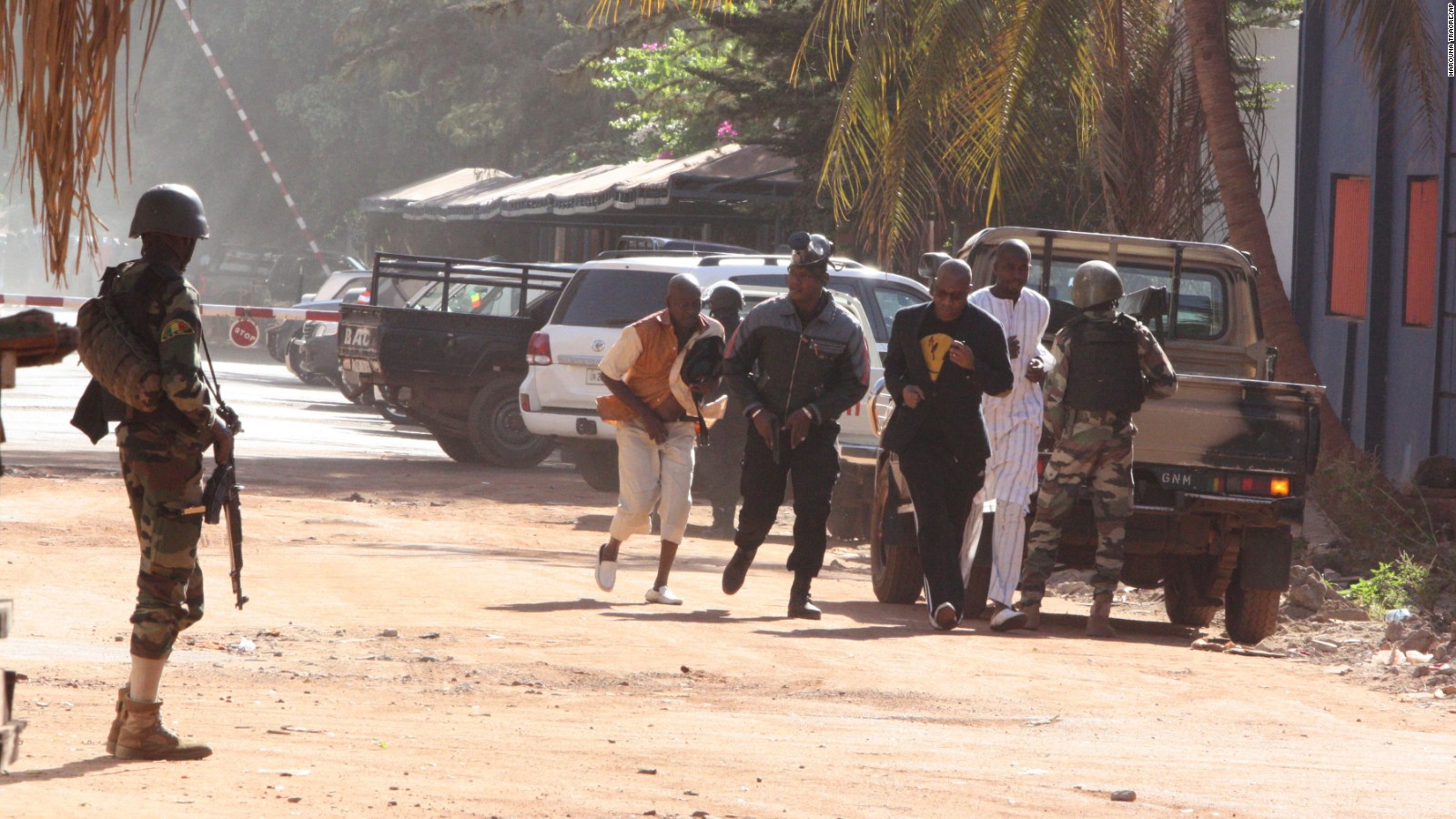Updated 2324 GMT (0724 HKT) November 20, 2015
| Video Source: CNN
Malian and U.N. security
forces launched a counterattack at the Radisson Blu Hotel in Bamako and
escorted guests out. By late afternoon, no hostages were believed to
remain in the building, army Col. Mamadou Coulibaly told reporters.
U.S. National Security Council spokesman Ned Price said in a written statement that the attack had ended.
Twenty-one
people were killed, said Olivier Salgado, a spokesman for the United
Nations peacekeeping mission in Mali. At least six people injured in the
attack have been hospitalized, Mali Health Minister Marie Madeleine
Togo told state broadcaster ORTM.
Al Mourabitoun, an Islamist militant
group, claimed it was jointly responsible for the attack, according to
Mauritanian news agency Al Akhbar. The group announced it carried out
the attack with al Qaeda in the Islamic Maghreb (AQIM), the news agency
reported.
Al
Mourabitoun said the attack was carried out in retaliation for
government aggression in northern Mali, Al Akhbar reported. The group
also demanded the release of prisoners in France.
Video aired by ORTM showed security personnel leading people out of the building.
"We
extend our deep condolences to the families and loved ones of those who
have been killed in this heinous attack. Our thoughts and prayers also
are with those who have been injured," Price said.
The
assault began about 7 a.m., when two or three attackers with AK-47
rifles exited at least one vehicle with diplomatic plates and entered
the hotel with guns firing, Salgado said.
The
attack, Salgado said, came as the hotel hosted diplomatic delegations
working on a peace process in the landlocked country, a former French
colony that has been battling Islamist extremists with the help of U.N.
and French forces.
The Radisson chain said that as many as 170 people -- 140 guests and 30 employees -- had been there as the attack began.
Mali's struggle for stability
The
hotel attack, and the diplomats' meeting, came in a country that has
struggled with Islamist extremists, especially since 2012.
Taking
advantage of a chaotic situation after a military coup in March 2012,
Islamist extremists with links to al Qaeda carved out a large portion of
northern Mali for themselves. When the militants tried to push into the
south, France, at the Malian government's request, sent thousands of
troops in 2013.
The ground and air
campaign sent Islamist fighters who had seized the northern region
fleeing into the vast desert. The United Nations then established a
peacekeeping mission in Mali that year, hoping to keep the government
secure enough to continue a peace process.
Though
military pressure largely drove Islamist militants from cities, they
have regrouped in the desert areas, said J. Peter Pham, director of the
Africa Center at the Washington-based Atlantic Council.
"Unfortunately,
this (hotel) is a likely target" because it is popular with
international guests such as U.N. workers, Pham said.



